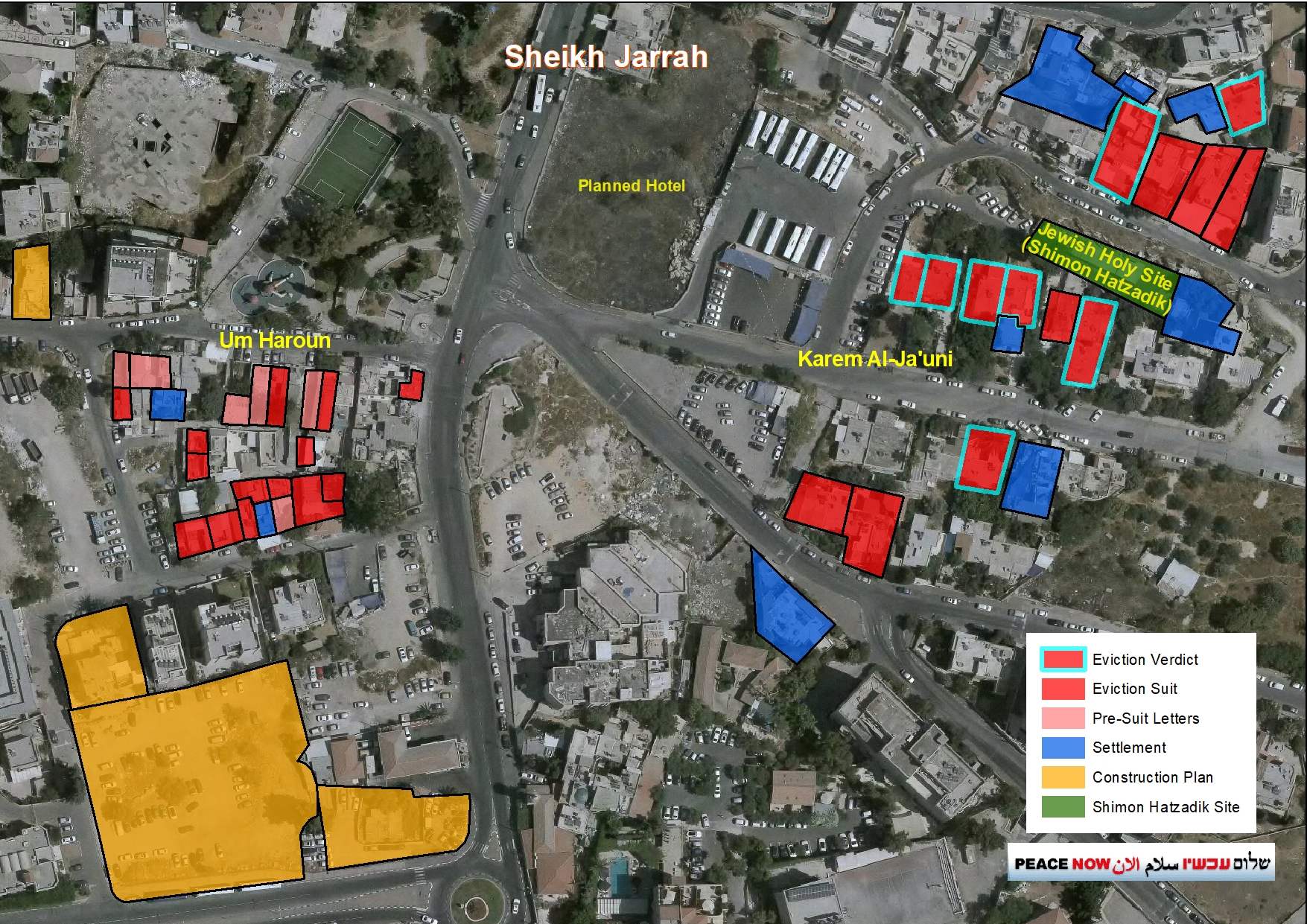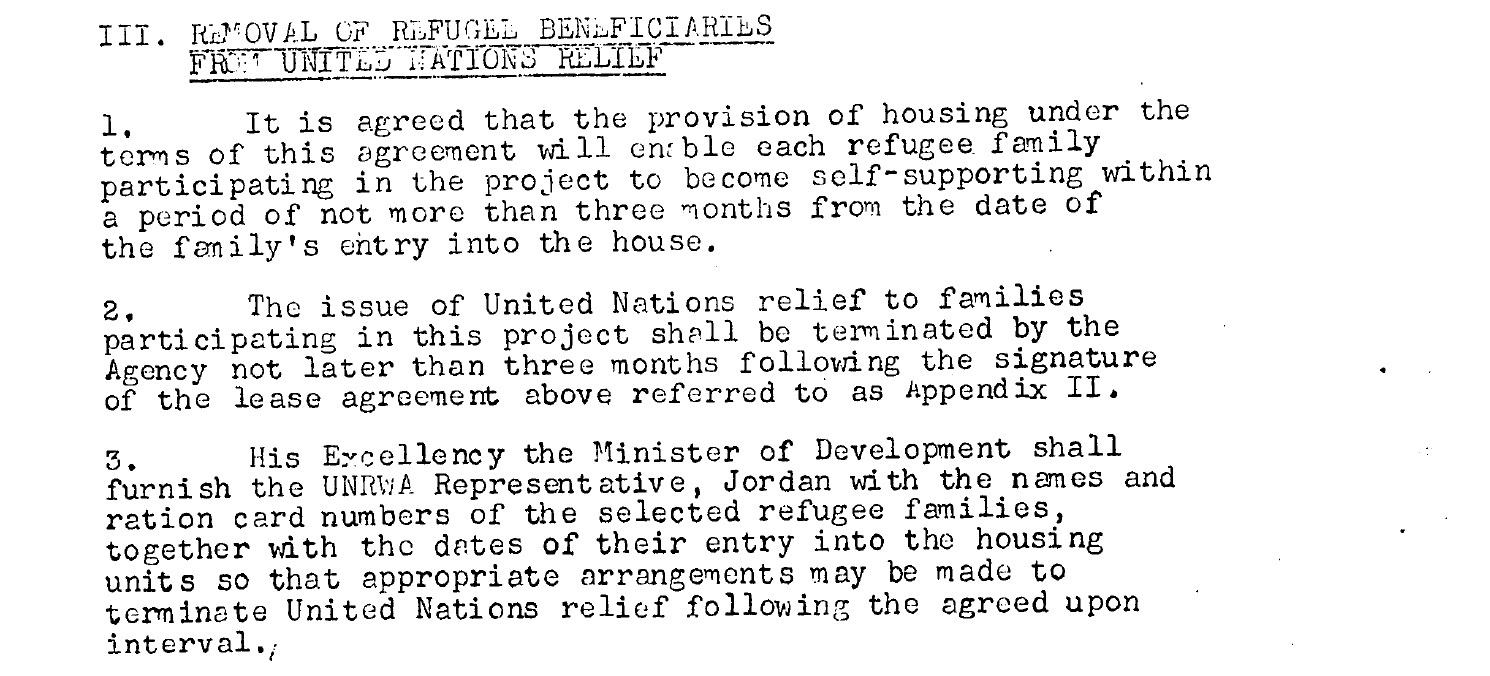The Jerusalem Magistrate’s Court ruled yesterday, 15/4/24, that the Diab family must vacate their home in Karem al-Ja’uni in Sheikh Jarrah within three months. The family has the option of filing an appeal with the district court, but if it is rejected, the 23 members of the family may find themselves thrown out onto the street and their home occupied by settlers. The struggle of the residents of Sheikh Jarrah has made headlines in recent years following dozens of eviction lawsuits filed by settlers against hundreds of residents of the neighborhood, and was even one of the factors behind the violent events of May 2021.
Peace now: “This is a heinous injustice based on a discriminatory system of laws. The story here is not legal but political. The court is only the tool by which settlers use with the close assistance of state authorities to commit the crime of displacing an entire community and replacing it with settlement. The Israeli government and settlers have no problem to displace thousands of Palestinians in the name of “the Right of Return” to properties before 1948, while they strongly claim that the millions of Israelis living in Palestinian properties before 1948 cannot be evicted. This injustice can and should be stopped by the government”.
Read a thorough explanation on how the government can prevent the evictions in East Jerusalem.

Hundreds of Palestinians at risk of eviction in Sheikh Jarrah
The Diab family was forced to flee their home in Jaffa in the 1948 war, and in the early 1950s found refuge in a neighborhood established by the Jordanians for Palestinian refugees in Sheikh Jarrah and lived there ever since. The eviction lawsuit against the Diab family (23 people) was filed by a company called “Nahalat Shimon” owned by a foreign company registered in Delaware (USA), which represents settlers seeking to establish a large settlement in Sheikh Jarrah. The settlers purchased the land from two Jewish associations, the Sephardi Community Committee and the Knesset Israel Committee, which claimed to have purchased the land at the end of the 19th century.
In 1948, the land, which was then without structures, came under Jordanian rule. The Jordanians designated the land for the rehabilitation of dozens of Palestinian refugee families, who exchanged their refugee status for homes in the newly built neighborhood in Sheikh Jarrah. After 1967, the Jewish associations recovered the ownership rights of the land based on the Legal and Administrative Matters Law (see below), and began to demand that the refugee families vacate their homes. To that extent, the associations were exercising the “right of return” of Jews to properties taken in 1948 (a right not afforded to Palestinians).
The settlement in Karem Ja’uni in Sheikh Jarrah began in 2008 when the al-Kurd family was evicted from their home, and in 2009 the Rawi, Hanoun and part of (another) al-Kurd families were evicted. Since then, settlers have filed at least 14 eviction cases against dozens of families of hundreds of people in Karem Ja’uni in Sheikh Jarrah. On the western side of the Sheikh Jarrah neighborhood, in Um Haroun, there are another few dozens of families facing eviction lawsuits by settlers, and in Batan Al-Hawa in Silwan there are almost 100 families at risk of eviction.
About two years ago, the Supreme Court ruled with regard to four of the Karem Ja’uni families, that they will be able to stay in their homes at least until the land registration procedure in the area is completed. Following this ruling, the Magistrate’s Court applied the same arrangement to two of the eviction cases. The cases of seven additional families is still pending in the Supreme Court, while the cases of the rest of the families are still ongoing in the Jerusalem Magistrate’s Court.
In the ruling regarding the Diab family, the judge of the Magistrate’s Court ruled yesterday that the family’s situation is not the same as that of the four families, because the Diabs did not prove that they had a contract with the Jordanian government, and therefore he rejected their claims regarding their right to continue living in their home. In the ruling, he states that the family must vacate the house by 15/7/24 and pay the settlers about NIS 100,000 in legal fees.
Background: The threat of eviction in Sheikh Jarrah and Silwan
The principle: the realization of the right of return for Jews
The houses in Karem Ja’uni were built in the 1950s by the Jordanian Housing Ministry as part of a refugee rehabilitation project in which 30 houses were constructed in Sheikh Jarrah for refugee families in return for waiving their status as refugees. It should be noted that the process of registering the houses in the names of the refugees was not completed before 1967. After the area was transferred to Israeli control in the 1967 War, the Jewish associations could take advantage of the lack of registration, and registered the land in their name based on the Legal and Administrative Matters Law (1970).

From the agreement between UNRWA, the Jordanian Government and the residents.
The discriminatory law
In 1970, the Legal and Administrative Matters Law was enacted in Israel, which stipulated, among other things, that Jews who lost their property in East Jerusalem in 1948 could receive it back to their ownership. It is important to mention that Israeli law (the Absentee Property Law of 1950) does not allow Palestinians who lost their assets in Israel in 1948 to receive them back, and permits the state to bring the assets into the state’s possession.
Thus, without saying so explicitly, Israeli law provides for a different law for Jews and Palestinians. In certain cases, like in Karem Ja’uni, the implementation of the law leads to the evacuation of Palestinian refugees from their homes, and in effect makes them refugees for the second time. Moreover, the government of Israel made sure to compensate all the Jews who lost their property in 1948 and gave them alternative assets inside Israel. Hence the owners of the properties are entitled under the Legal and Administrative Matters Law to double compensation for the loss in 1948.
For an analysis of the law and its implementation, see here.
The Palestinian refugees families in Sheikh Jarrah, had owned houses and lands in Israel before 1948, but as a result of the war became refugees. According to the Absentee Property Law (1950), they are not entitled to receive or return to their property. In the 1950s, those families attempted to rehabilitate themselves in exchange for giving up their status as a refugee family. Today, on the basis of the discriminatory law enacted by the Knesset, those families are about to become refugees again, without any justice, where all that has changed is the geopolitical situation and the law enacted by Israel.

